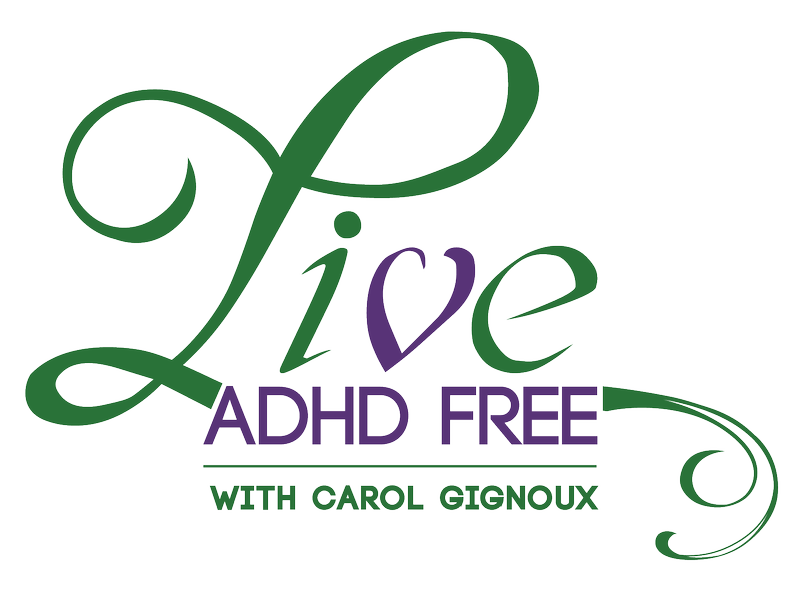Let’s be real: for each of us with ADHD, there has always been a negative stereotype or two associated with us.
You’re a bad boyfriend or girlfriend; you’re a lazy employee; you’re too selfish for your friends and family to depend on you. You hate having people think this about you, but you also don’t get why it happens so you can’t figure out how to change it.
Backing up for a second, it’s important to get the science of all this out in the open. ADHD is a brain type, with extra tissue in the brain and a different chemical balance than other people. All of this adds up to hyper-speed brain power, with an estimated 10 thoughts racing through the ADHD brain in the time other people have 1 thought.
As a byproduct of this intense thought pattern, there is some absentmindedness that comes along.
These are some of the social symptoms of ADHD that I deal with the most as an ADHD Coach:
- Arriving late
- Not showing up at all
- Forgetting important occasions, dates or anniversaries
- Interrupting
- Changing plans without letting others know
- Misplacing important items
- Making a mess in common space
What is the common theme of these behaviors? They disrespect someone else, and the other person gets his or her feelings hurt. Blowing off an appointment tells that person that they don’t deserve your attention. Blanking on birthdays or losing important documents shows a careless treatment of your relationship. Interrupting someone means that the words coming out of their mouth mean nothing to you. Leaving dishes or other clutter behind for someone else to clean up means that you believe someone else should do your dirty work.
When this goes on for too long, it ruins your reputation. People believe your actions more than your words. When you show them over and over that you don’t have respect for their time, feelings and space, they eventually get the picture: you don’t care.
But I know that you do care.
I’m in a unique position: as a person with ADHD, and as a person who works exclusively with ADHD’ers, I see this problem from both sides. I understand how frustrating it is to be stood up, to go unpaid because of messy personal circumstances, to have to re-do plans to suit the general chaos of ADHD life. I’ve been on the receiving end of this inconsiderate behavior – and I’ve done it to others myself.
There are five basic steps that you can take to repair injured relationships and to stop repeating these problematic behaviors.
- Be careful about saying “yes.” Don’t commit to something unless you feel sure that you can follow through. When you do give your word, take steps to make sure you live up to it. I have lots of detailed advice on this topic regarding relationships, work and more in my ebooks.
- Seek out balanced relationships. Find people who aren’t easily offended, so some of these problems don’t happen in the first place. Likewise, work hard to show these valuable loved ones respect. Relationships work best when each person gives a little.
- Give explanations. Stop the cycle of disrespect before it starts by being upfront with the people in your life about chronic issues for you. Tell them about ADHD (you can even point them to my About ADHD section [fusion_builder_container hundred_percent=”yes” overflow=”visible”][fusion_builder_row][fusion_builder_column type=”1_1″ background_position=”left top” background_color=”” border_size=”” border_color=”” border_style=”solid” spacing=”yes” background_image=”” background_repeat=”no-repeat” padding=”” margin_top=”0px” margin_bottom=”0px” class=”” id=”” animation_type=”” animation_speed=”0.3″ animation_direction=”left” hide_on_mobile=”no” center_content=”no” min_height=”none”][ https://liveadhdfree.com/about-live-adhd-free/ ]!) and give them a head’s up that you struggle with punctuality/interrupting/messiness. Explain to them what they should do to help you get better.
- State the obvious. If an awkward moment has arisen, talk it out. Get back to neutral ground by explaining, point by point, what you did and what you were thinking. Then ask the other person to explain what they did, why they did it, and what conclusions they jumped to. So many miscommunications can be cleared up by just talking things through!
- Really make apologies count. When you say you’re sorry for something, make sure you understand why you’re saying it. The words really need to count. To make sure you’re not just giving lip service, include details about the plan you have to prevent the problem from happening again in the future. And if your feelings are hurt, too, it’s a good idea to explain that and to ask for an apology in return.
[/fusion_builder_column][/fusion_builder_row][/fusion_builder_container]

